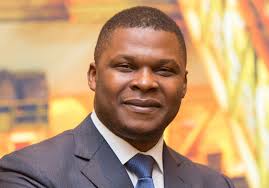The Executive Chairman of African Energy Chamber (AEC), NJ Ayuk has described the current attitude of Western countries to reduce investments in Africa’s energy sector as undesirable in view of the negative multiplier effects on economic growth of countries in the continent.
The Chamber’s boss expressed concerns that withdrawal of Western financial support from Africa’s oil and gas sector as well as delays in key projects due to lack of investment, was threatening to undermine the continent’s energy development and economic progress says the.
The AEC noted that in recent years, many Western banks and financial institutions had implemented policies aimed at reducing support for fossil fuel projects, especially in Africa, thereby leading to a sharp decline in investment in the continent’s oil and gas industry, a sector that is crucial for its economic future and energy needs.
The Chamber accused the institutions of practising “financial apartheid,” especially when such projects continued to receive support in Europe.
According to the AEC, the decline in investment is already having a noticeable impact, exacerbated by global shifts towards cleaner energy and prioritizing of ESG practices.
For instance, it noted that major international oil companies were reducing their presence in Africa as Equinor had withdrawn from offshore exploration in South Africa and ExxonMobil had also divested from a deep-water oil prospect in Ghana.
Commenting on the worrisome development, Ayuk said: “As the international community moves to boycott investments in the African energy sector, African people and African development stand to suffer.
“The role of oil in Africa’s energy and economic future is apparent, and consequently, should be defended as Western elites move to disrupt African progress”, he added.
The AEC pointed out that the International Energy Agency (IEA) had added to these challenges with its calls to cease funding for oil and gas projects, highlighting a disparity: while natural gas is considered a ‘green’ energy source for Europe, it does not receive the same treatment in Africa.
According to Ayuk, “the IEA has lost its relevance and its authority” as the agency originally focused on managing oil supply disruptions has now prioritize policies aimed at achieving net-zero emissions by 2050.
Its 2019 projection that no new investments in oil, gas, or coal are needed if the world continues on this path has been particularly controversial.
The Chamber listed several key African projects at risk due to the withdrawal of financial support from the Western banks and institutions as including TotalEnergies’ Mozambique LNG project, ExxonMobil’s Rovuma LNG project, Nigeria’s Train 7 LNG expansion Project, Senegal’s Sangomar oil field, Uganda’s Tilenga project and the East African Crude Oil Pipeline (EACOP) all of which require substantial financing to advance.
However, it noted that despite these setbacks, some projects continued to record progress. For instance, TotalEnergies is advancing its $20 billion Mozambique LNG project, aiming to develop the Golfinho and Atum fields with a production capacity of 12.88 million tonnes per year. Eni’s Coral South FLNG project in Mozambique has achieved a production capacity of 3.4 million tonnes per year.
Additionally, the Greater Tortue Ahmeyim (GTA) LNG project, which started gas production in November 2022, is being developed by bp, Kosmos Energy and the national oil companies of Senegal and Mauritania. This project includes an FLNG facility with an initial capacity of 2.5 million tonnes per year.
Meanwhile Nigeria’s Train 7 project, an expansion of the existing NLNG facility on Bonny Island, aims to boost production by 8 million tonnes per year, bringing the total to about 30 million tonnes per year. The completion of this project is crucial for Nigeria’s growing population and its ability to meet its energy needs.
Expatiating further on the energy sector situation, the AEC Chairman lamented: “Today, African Energy Poverty numbers are skyrocketing. Nine hundred million Africans lack access to clean cooking technologies, while 600 million lack access to electricity, most of them women.
“African families are facing high energy cost and inflation is going up,” Ayuk emphasizes. “It is shocking that financial institutions that do business in Africa continue to practice financial apartheid by cutting off capital and financing to oil and gas companies operating in Africa because of climate concerns.
These same institutions fund gas development in Europe, where natural gas is deemed green and a fossil fuel for Africans”, Ayuk added.
The Chamber maintained that the disparity in financing not only undermined Africa’s ability to harness its natural resources for its development but also continued to perpetuate a cycle of energy deprivation.
To reverse the ugly trend, the AEC urges a re-evaluation of this approach and calls on global financiers to support Africa’s energy projects, recognizing their critical role in advancing economic development, enhancing energy security, and improving living standards across the continent.






